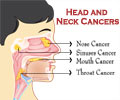A recent study explores the relationship between high risk behaviors like multiple sex partners, HPV, and oropharyngeal cancer.
- HPV is a group of more than 200 related viruses, some of which are spread through vaginal, anal, or oral sex
- A recent study shows that smoking and alcohol consumption are high risk factors for oropharyngeal cancer and not just high risk sexual behaviors
- The study highlights the importance of vaccinating boys and girls against HPV before the age of 18 as they become sexually active around this age
Is High-Risk Sexual Behavior a Risk Factor for Oropharyngeal Cancer?
Go to source).
What is HPV and When Does it Become Cancerous?
Human papillomavirus (HPV) is a common virus that affects nearly everyone at some point in their lives. HPV can infect epithelial cells of the skin and mucosa in a variety of locations. There are about 100 known HPV subtypes, the majority of which produce only benign diseases like warts and condyloma. Most persons who are infected do not develop major symptoms due to a well-functioning immune response.Some HPV subtypes, however, are not so benign. These subtypes, particularly subtype HPV16, have the ability to change infected cells into neoplastic cells, which can ultimately grow into precancerous lesions or even cancer. The development of head and neck cancer, particularly oropharyngeal carcinoma, is thought to be etiologically connected to HPV.
Because HPV infections are spread by sexual activity, HPV-related cancers such as uterine cervix and oropharyngeal cancer, as well as penile, vulvar, and anal cancer, are classified as sexually transmitted diseases (STDs). HPV is responsible for around one-third of oropharyngeal malignancies diagnosed in Germany.
The Role of High-Risk Sexual Activity in Oropharyngeal Cancer
Oropharyngeal cancer patients are frequently thought to have high-risk sexual activity and an increased number of oral sex partners. Some high-ranking American publications have considerably contributed to this notion by frequently reporting a significantly increased prevalence of oral and vaginal sex partners in patients with HPV-related oropharyngeal cancer.In the current investigation, 303 healthy controls from the LIFE population-based cohort study were invited and interviewed, and their responses were compared to those of 317 LIFE investigation patients with head and neck cancer.
"Our current study relativizes the previous view of HPV-associated oropharyngeal cancer as a disease that people get who engage in high-risk sexual behavior and have a significantly higher number of sex partners, in particular, oral sex partners. The sexual behavior of our patients with HPV-driven oropharyngeal cancer does not deviate from that of other head and neck cancer patients and especially not from that of the matched healthy controls," says Professor Andreas Dietz, director of the ENT Department and professor for otorhinolaryngology at Leipzig University.
The study was published in the journal Cancers. "Our research points to a set of risk factors for oropharyngeal cancer that can be prevented. These include smoking and drinking large amounts of alcohol on a daily basis. Protection can also be achieved by vaccinating both sexes against HPV as early as possible," says Dr. Gunnar Wichmann, lead author and head of the ENT Research Lab at the University of Leipzig Medical Center.
HPV Vaccination: A Must for Boys and Girls Below 18
The relevance of sexual transmission of the infection is highlighted by the study, which found that patients who developed HPV-driven oropharyngeal cancer were more likely to have been sexually active before the age of 18. "It is highly recommended that both girls and boys be vaccinated early and before puberty," Professor Dietz explains. HPV vaccines are approved for girls and boys as young as nine years old, and the expense of vaccinations before the age of 18 is covered by all statutory health insurance companies.Reference:
- Is High-Risk Sexual Behavior a Risk Factor for Oropharyngeal Cancer? - (https://pubmed.ncbi.nlm.nih.gov/37444466/)
Source-Medindia











